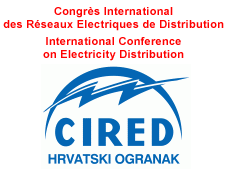Department of Energy and Power Systems was founded at the 129th Faculty Council’s Regular Session of the Technical College University of Zagreb, on Tuesday June 26, 1934. Department of Energy and Power Systems studies and innovates in the fields of generation, transmission, distribution and use of electrical energy, energy efficiency, high voltage engineering, smart grids, energy management, nuclear engineering and safety, electricity markets, and electric vehicles. Throughout the years, the Department has become the leading authority in the field of electrical power engineering in the region, maintaining long-term collaboration with the industry sector. Furthermore, it is recognized through its research activities and a large number of published scientific papers in JCR journals, as well as numerous national and international research projects. In total, the Department has 52 employees (16 Professors – 9 Full, 4 Associate and 3 Assistant) and offers substantial educational and R&D facilities, including five Research Laboratories, six department teaching halls and a department library. Through its activities, the Department has developed valuable international collaboration with many research institutions around the world. Researchers of the Department are currently involved in 3 HORIZON 2020 projects, 2 bilateral projects, 1 Erasmus+ project, 5 projects financed by the Croatian Science Foundation, as well as the principal investigators of a number of industry-funded projects.
Hrvatska IEEE sekcija i odjel za elektroenergetiku organizirali su predavanje:
Powering the 2010 Olympic Winter Games
u petak 16. listopada 2009. u 12 sati, Siva vijećnica, FER Zagreb.
Predavanje je održala Meliha B. Selak, Specialist Engineer in Electric Power Systems, BC Hydro, Kanada.
Predavanje je bilo o pouzdanosti i održivosti opskbe električnom energijom Olimpijskih igara 2010. u Vancouveru.
Više o predavaču i predavanju možete pročitati u nastavku.
Abstract
Vancouver, British Columbia is hosting the 2010 Olympic Winter Games, Vancouver 2010. The 2010 Winter Games will need high levels of electric reliability to support the unique requirements associated with hosting an event that will attract more than three billion television viewers and 75 million website visits worldwide. The total Games Time load will be approximately 140 MW delivered to about 120 sites, of which 17 are major competition and non-competition venues having extraordinary reliability requirements.
 BC Hydro has worked with the Vancouver Organizing Committee for the Olympic Games (VANOC) to provide a sustainable solution to satisfy this need for highly reliable power. BC Hydro is a Crown corporation, owned by the Province of British Columbia and regulated by the British Columbia Utilities Commission (BCUC), an independent body. It is one of North America’s leading providers of clean, renewable energy. Currently, BC Hydro supplies approximately 1.8 million customers.
BC Hydro has worked with the Vancouver Organizing Committee for the Olympic Games (VANOC) to provide a sustainable solution to satisfy this need for highly reliable power. BC Hydro is a Crown corporation, owned by the Province of British Columbia and regulated by the British Columbia Utilities Commission (BCUC), an independent body. It is one of North America’s leading providers of clean, renewable energy. Currently, BC Hydro supplies approximately 1.8 million customers.
The unique challenges and solutions being implemented to deliver power to each of the 17 Olympic venues will be presented. This work has involved estimating load and designing the required capacity, reliability and redundancy to power that load. Analytical methods have included IEEE Gold Book methodology for analyzing extremely reliable power delivery systems from high voltage substation source through to low voltage critical end user, including the venues’ internal electrical systems. These methods have helped to confirm the soundness of VANOC’s planned approach to Powering the 2010 Games. The calculatedly reliability performance statistics for the planned power infrastructure will be presented and discussed. The critical roles of utility and backup generators in reliably serving the load will be reviewed. The planned approach to Powering the 2010 Games will be carbon-neutral and will not contribute to global warming.
Meliha B. Selak is a Specialist Engineer in Electrical Power Systems with BC Hydro. She has an Electrical Engineering degree from the University of Sarajevo and has over 30 years of experience in various aspects of power systems engineering including utility protection, research & development, project management and consulting on international projects. Prior to joining BC Hydro in 2000, she worked as a research engineer in the Power System Group at the University of British Columbia on Real-Time Power System Simulator in connection with EMTP. Her technical activities include power system protection and control applications, power system analysis, evaluations and interconnection studies for the various plants connecting to the power system, as well as development of the protection guidelines.
She is a registered professional engineer in the Province of British Columbia and is a senior member of IEEE. In 2009 she is serving as the vice president for Chapters for the IEEE Power & Energy Society and a member of its governing board. Also, she is a member of the IEEE Power System Relay Committee (PSRC). She has written numerous documents and technical papers associated on the power system subjects and also a paper reviewer.


 Pristupačnost
Pristupačnost
